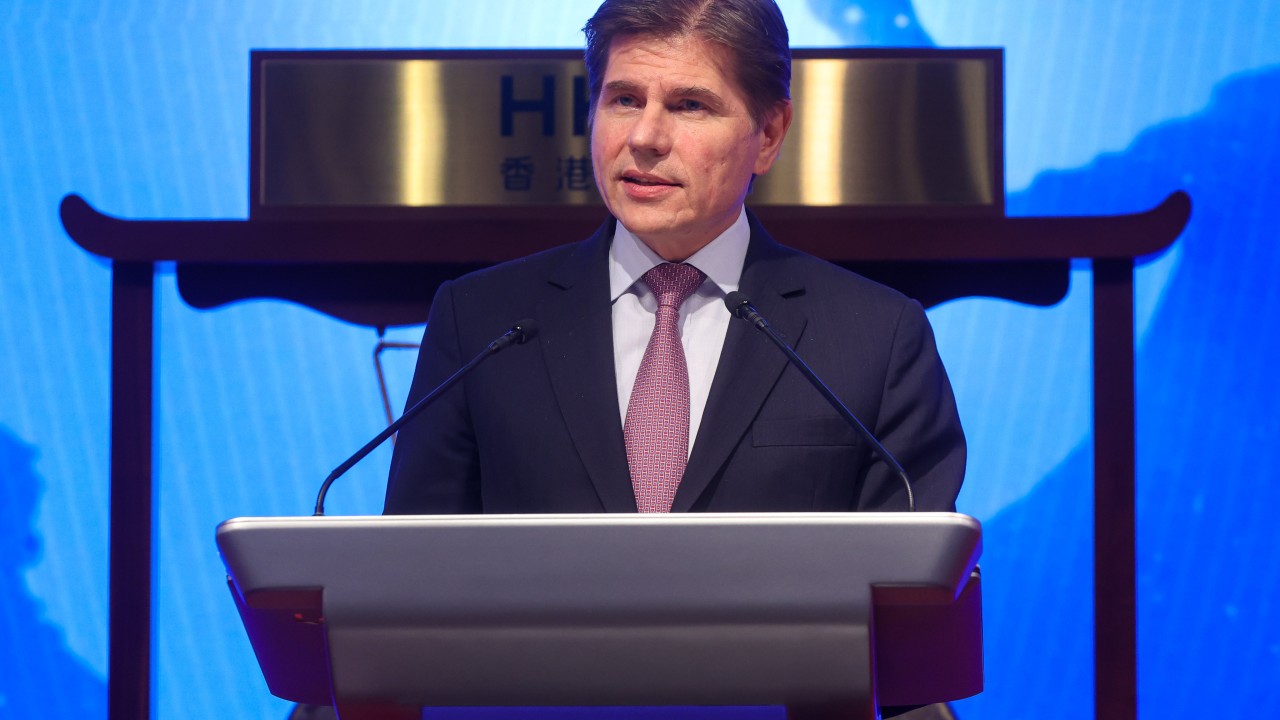
25 Jan Asian Financial Forum: HKEX’s Aguzin underscores Hong Kong’s ‘superconnector’ role, says China, rest of the world ‘massively underinvested’ in each other

“China represents close to 20 per cent of the global GDP, and the amount of investment today by international investors is like 2 per cent, 3 per cent. So that, at some point, has to shift.”
While China’s economic growth has slowed, recording a 5.2 per cent increment last year, the opportunities in its US$18 trillion economy remain significant, Aguzin added.
Aguzin and the other speakers on the panel agreed that some investment flows were happening despite a difficult 2023, which saw high interest rates, heightened geopolitical tensions and an economic slowdown, around the world.
Southbound trading, or mainland investors buying and selling offshore debt through the Hong Kong exchange’s Stock Connect mechanisms, is starting to drive material volume, said Matthew Ginsburg, the global co-head of investment banking at HSBC.
Hong Kong’s ‘immigrant DNA’ allows city to thrive as ‘superconnector’
Hong Kong’s ‘immigrant DNA’ allows city to thrive as ‘superconnector’
“At the end of the day, investors choose to come to markets where there is capital and where there are investors, and the more that Hong Kong represents access to Chinese capital, the more attractive it is going to be for issuers from Indonesia, from Thailand and the likes,” he added.
Hong Kong, Saudi agree to deepen financial markets collaboration
Hong Kong, Saudi agree to deepen financial markets collaboration
Mindful of headwinds such as inflation, geopolitical tensions and elections in several countries around the world, the speakers struck a cautiously optimistic note on the outlook for capital markets in 2024.
“We’re hopeful that if you put together earnings, economic growth, more stability and support from the Chinese government, which is always critical, that 2024 will be a better year than we all think it might be,” Ginsburg said.
The markets are finding themselves at a point where they are seeing some movement from equity markets into money market funds, and some movement outside China, because of geopolitics, Aguzin said.
“At some point these things will turn. We’re probably getting closer to the bottom of a cycle,” he added.
